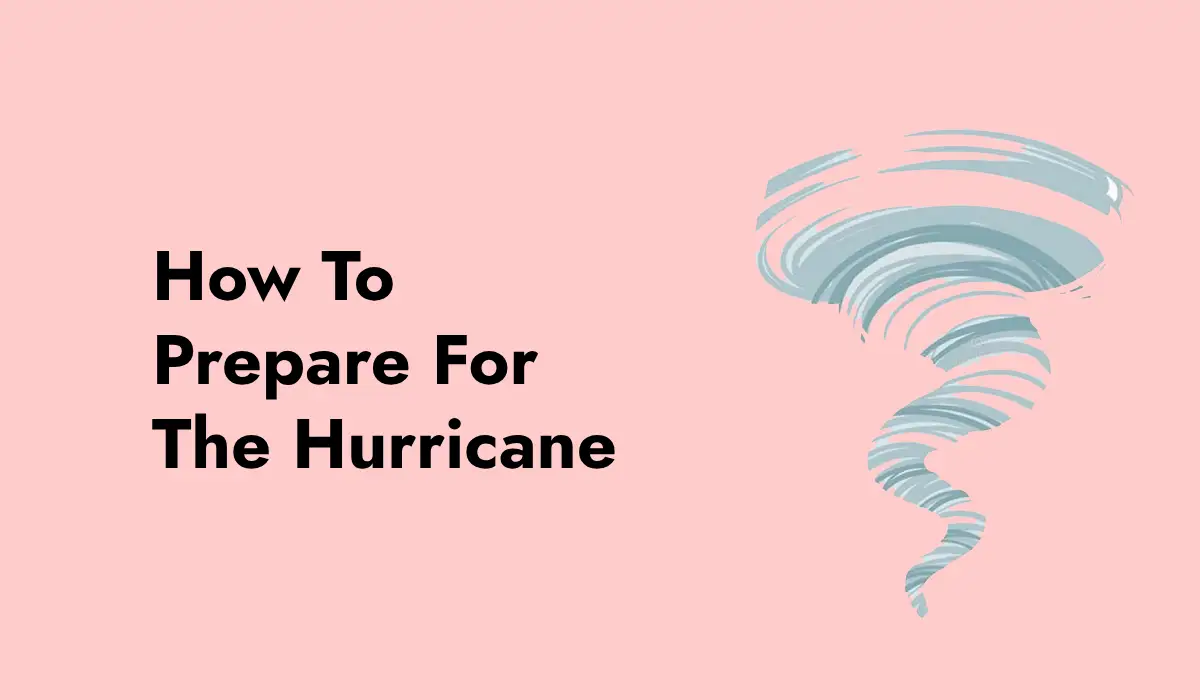An approaching hurricane is always stressful. Buying the best house insurance might help alleviate anxiety. Here are some strategies to prepare for a hurricane.
Sign Up for Local Alerts and Warnings.
The first step is to stay informed about thunderstorms. You can follow local news and weather reporting and purchase a NOAA weather radio.
Prepare Your Insurance for Hurricanes
Review your insurance policy to ensure adequate coverage. Here’s what to look for in each form of coverage.
Homeowner, Condo, and Renters Insurance
Your homeowner’s insurance policy covers your residence (home), but coverage for storm damage might be complicated. If you rent or live in a condo, your landlord’s or HOA association’s insurance usually covers the structure, whereas your renters or condo insurance covers your possessions inside your unit.
Your homeowner’s insurance may not be sufficient for hurricanes. Regular policies typically exclude coverage for flood damage, and depending on where you live, hurricane-related wind damage may be partially or fully excluded.
Speak with your home insurance agent to see what is covered and create a storm insurance strategy. You may need to buy both flood and wind insurance. Keep in mind that specific policies require a waiting period. For example, if you want flood insurance from FEMA, there is usually a 30-day waiting period, with a few exceptions.
Depending on where you reside, a private insurance provider may be able to provide flood insurance without a waiting period. Zurich Residential Private Flood Insurance is one insurer that does not require a waiting period.
Other private insurers offer flood insurance with shorter wait times. For example, Neptune Flood Insurance requires a 10-day wait time.

- Certified pre-approval Process
- Online Application Available 24/7
4.3
editorial team. We score based on factors
that are helpful for consumers, such as
how it affects credit scores, the rates and
fees charged, the customer experience,
and responsible lending practices.
Related: Best Car Insurance for Teens of July 2024
Car Insurance
Comprehensive car insurance is required to protect your vehicle from hurricane-related damage. This covers vehicle damage caused by flooding and falling debris (such as tree branches).
There is usually no waiting period when adding this coverage to your car insurance policy.
Protect your property.
You can take a few last-minute precautions to prepare for a storm and minimize damage from high winds, rain, and flooding.
- To protect your home from heavy winds, reinforce or reinforce your home’s doors, windows, walls, and roof.
- Consider building a “safe room” that satisfies FEMA standards or an ICC 500-compliant storm shelter.
- Bring lightweight items inside (such as patio chairs and garbage cans).
- Anchor any objects that you cannot bring inside.
- Trim or remove trees that could fall on your house.
- Keep your gutters and drains clear of junk.
- Install a water alarm and sump pump with a backup battery.
- Install “check valves” in sewer lines to prevent floodwater from backing into your drains.
- Store emergency protective items such as plastic, plywood, sandbags, and sheeting.
- Waterproof your basement.
- Consider raising your building.
Collect and secure critical documents and records.
Put any vital documents in a waterproof container.
- Financial documents
- Insurance policies
- Medical records
- Educational documents.
- Legal Documents
- Other kinds of documentation include birth certificates and passports
Farmers Insurance also suggests getting to know your neighbours. You might need each other’s support after the storm. Farmers recommend joining or forming a local group to communicate and share emergency supplies later, such as chainsaws and generators.
Prepare a Disaster Supply Kit.
You should build a disaster kit ahead of time and keep it handy in case you need to leave fast. Your disaster kit may include:
- Food and water for a minimum of three days
- A battery-powered or hand-cranked NOAA radio.
- First Aid Kit
- Flashlight
- Extra batteries and mobile phone chargers
- Dust masks
- Duct tape, plastic sheeting, trash bags, and plastic ties
- Tools, such as pliers or a wrench.
- Local maps.
- Woollen blankets or sleeping bags
- Change your clothes (including rain gear).
- Prescription and over-the-counter drugs.
- Read more about a basic disaster kit and other emergency items.
Plan what to do during a hurricane.
FEMA recommends that you take the following procedures in the event of a hurricane:
- Follow the advice of local authorities.
- Evacuate if instructed by local authorities. Grab your “go bag” and go quickly.
- Protect yourself against heavy winds. Avoid windows and seek refuge on the lowest level in an inner room.
- If there is a flood warning, move to higher ground.
- “Turn around don’t drown.” Avoid walking or driving on flooded roads or through water.
- If you or someone else is in immediate danger, call 911.

- Certified pre-approval Process
- Online Application Available 24/7
4.3
editorial team. We score based on factors
that are helpful for consumers, such as
how it affects credit scores, the rates and
fees charged, the customer experience,
and responsible lending practices.


 Read More
Read More 




